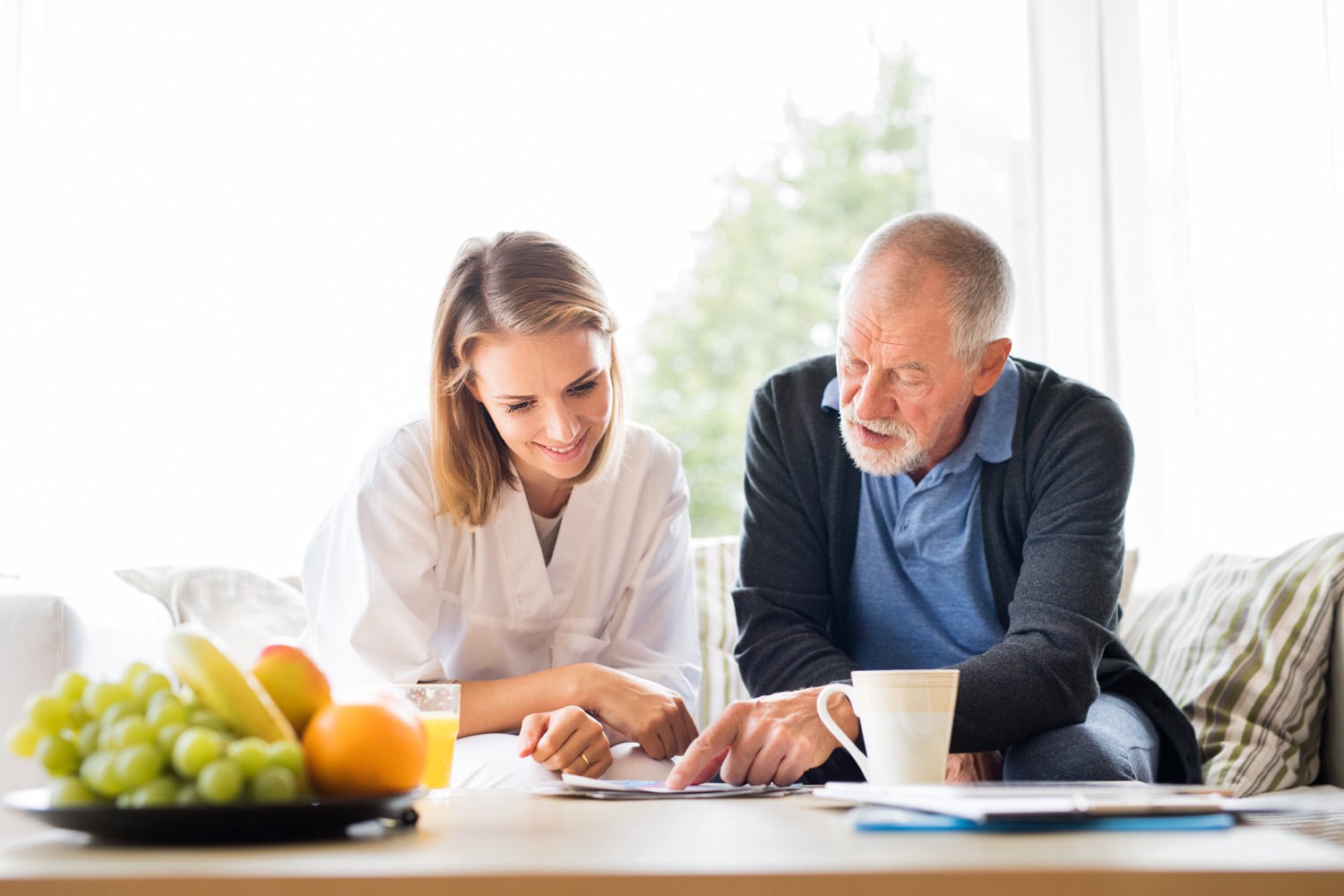
All humans benefit from daily routines. According to the experts at clockwise.com, a daily routine has multiple research-backed benefits. These include improved mental health and stress reduction to more meaningful productivity and greater life satisfaction. But what’s the best way to create this structure for an elderly person? Keep reading to find out.
Daily Routine for the Elderly Supports Loved Ones’ Well-Being
Establishing daily routines for elderly family members is not only good for their mental health, but also their physical well-being. Routines are proven to improve immune function, mainly because they help to protect an individual’s circadian rhythm and sleep habits.
Additionally, a routine:
- Helps to keep people anchored in the month, date, day of the week, and time of day.
- Improves cognitive function.
- Supports taking medications on time and as prescribed.
- Establishes time and space for things like exercise and social engagement.
- Helps to make each day feel separate from the next, rather than part of one big timeless blur.
Here is an example of what a daily routine looks like for one of our clients:
- 8:00 – Wake up, gentle stretches before leaving the bed, morning hygiene routine.
- 8:30 – Enjoy a cup of tea or coffee followed by a healthy breakfast.
- Take morning medications.
- 9:00 – Read the paper or watch the news.
- 10:00 – Take a walk, attend a seasonal exercise class, or do an exercise video/routine at home.
- 11:00 – Connect with a friend on the phone or in person (often eating lunch together at a restaurant or one another’s home).
- Take mid-day medications.
- 1:00 – Errand running, appointments, or social time if lunch was at home.
- 2:30 or 3:00 – Quiet reading time, puzzle/game time, or time for a short nap.
- Tea/coffee time with a small snack (decaf to protect nighttime sleep).
- 4:00 – Connect by phone or video with long-distance friends, grandchildren, or other family members or loved ones.
- 4:30 to 5 – Start preparing to make dinner.
- 6:00 – Dinner time.
- 7:30 – Begin winding down for the evening (shower/bath, PJs, a cup of relaxing tea or warm milk, listen to music, read, watch a couple of favorite shows)
- Take evening meditations.
- 10:00 to 11:00 – Head to bed.
Of course, every client’s routine is different and tailored to their individual rhythm, calendar, interests, and needs. The point here is to have a general idea of a consistent schedule reflecting the senior’s version of a well-lived day.
Creating a Daily Routine That “Sticks”
You want the routine to be reasonable and repeatable enough that it’s sustainable. Here is how we help clients and families create a daily routine that “sticks” and is easy for others to facilitate when respite care or substitute caregivers may be required.
1. It Should Reflect the Individual’s Natural Rhythm
Historically, humans could be considered solar-powered, with an innate circadian rhythm in sync with the sunrise and sunset. Even so, some people are more early birds than others. However, nighttime bedtimes are best when set close or within a few hours after sunset to support the body’s physiological needs.
Sleep is when our brains and bodies heal and regenerate, process the day’s activities, reinforce memory pathways, detox the brain, produce and facilitate hormone regulation, restore the immune system, and so on.
So, while it’s essential to create a routine that honors an individual’s circadian rhythm—be they an early bird or night owl—a good routine requires adequate sleep during the night and mostly wakefulness during the day.
2. Use an Activity and Interest-based Approach
Since most adults 65+ are retired or work part-time, the day should include activities that reflect their interests and social network. Seniors are prone to retreating as they age. This is partly natural but can also be a sign of:
- Fear of driving or the inability to drive
- Depression
- Anxiety
- Loneliness
- Self-consciousness around personal hygiene
- Not feeling well due to unmanaged health conditions or poor diet
- Embarrassment around memory loss
Social retreat and some of the issues listed above are signs that a loved one needs more support to maintain an active daily routine.
Make a list of their interests, hobbies, friend network, favorite restaurants, etc., and then plug in activities and social dates accordingly.
3. Make Exercise a Daily Habit
Exercise is essential to senior health and well-being. Seniors who get regular doses of moderate daily exercise have decreased risks from:
- Falling accidents
- Depression and mental health issues
- Type 2 diabetes
- Heart disease
- Cognitive decline
Daily exercise helps to tire out the body, which supports getting a good night’s sleep. And it also provides pain relief and inflammation reduction for those with arthritis and other inflammatory-related ailments.
To keep things interesting, we recommend talking to seniors about ways to mix up the exercise routine from day to day, goal to goal, and season to season. Examples include things like:
- Daily walks
- Weekly outings or walks in natural environments
- Balance exercises
- Core and strength training
- Chair or bed exercises for low-energy days or for those who are homebound
- Taking senior-friendly exercise classes at the local gym or senior center
- Using YouTube’s wealth of senior exercise videos
- Restorative yoga
- Swimming laps or taking a water aerobics class
- Taking a ballroom dance class or joining a dance club
- Gardening at home or in a community garden
Get creative. Even a nightly solo dance party is a fun and healthy way to get the heart pumping!
4. Make Social Connections a Scheduling Priority
Social engagement should be considered as essential as food, water, and clothing. A recent Harvard publication “Strengthening Social Connection in Older Adults” from the National Center for Equitable Care for Elders provides a long list of serious physical/mental health issues that are more common in isolated seniors.
According to the article, senior social isolation is associated with:
- 29% increased risk of all-cause mortality
- 59% increased risk of functional decline
- 24% increased risk of death
- Reductions in life span equal to that of someone who smoked 15 packs of cigarettes per day!
Younger family members should be mindful that retirement and age-related changes often strip a person of the satisfying things they did or accomplished individually in their younger days. Social and community engagement fills that void, increasing seniors’ sense of daily fulfillment and life satisfaction.
Introverted seniors can benefit from engaging with their communities in volunteer or other behind-the-scenes, service-oriented activities.
5. Caregivers Support the Daily Routine of Elderly Clients
In-home caregivers understand how important a daily routine is for our elderly clients. We’re there to support them every step of the way, via part-time, full-time, overnight, or live-in shifts.
In addition to providing companionship and assistance around the house, we also help with:
- Medication reminders
- Personal & hygiene care
- Errand running, grocery shopping, and meal planning
- Transportation to/from appointments and social engagements
If you’d like to hear more about how the right in-home care provider can keep your loved one active, inspired, and engaged in their routines, click below to schedule a free in-home assessment.
Request a Free In-Home Assessment
For more information about the services that Families Choice Health Care provides, contact us by clicking below.





